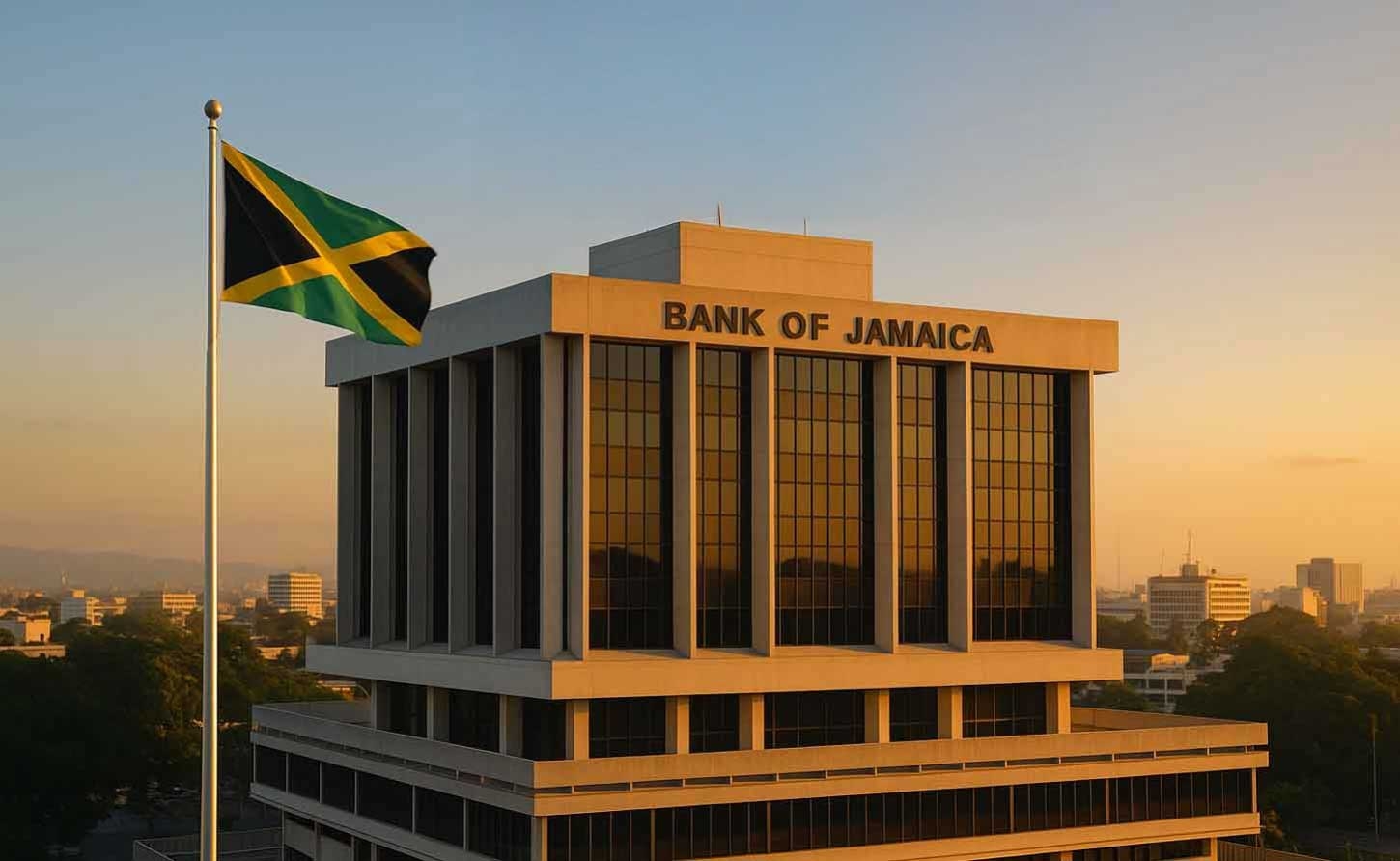JAMAICA | BOJ Defend Dollar as Hurricane Melissa Strains Foreign Exchange Market

KINGSTON, Jamaica – November 21, 2025 – The Bank of Jamaica intervened in the foreign exchange market for the third time on Friday, injecting another US$30 million in a continuing effort to stabilize the Jamaican dollar against mounting pressure in the wake of Hurricane Melissa.
Last Friday's intervention marks the 31st time the central bank has stepped into the FX market since the start of 2025, bringing this week's total interventions to US$90 million and the year-to-date total to US$860 million drawn from the Net International Reserves.
Despite the significant injection, excess demand for foreign currency persisted, with US$15.4 million in unmet demand remaining in the market—a stark illustration of the strain Hurricane Melissa has placed on Jamaica's foreign exchange system.
The aggressive intervention pattern directly contradicts the tone of confidence struck just days earlier when the Bank of Jamaica's Financial Policy Committee declared the institution "stands ready to provide the necessary liquidity support" and pledged to "maintain orderly conditions in the foreign exchange market."
The Gap Between Assurance and Reality

Yet the frequency and scale of FX interventions—three times in a single week, totaling more than Jamaica has spent in some entire quarters—suggests the market pressure is more acute than the measured language of the policy statement indicated.
The disconnect highlights a central challenge facing Jamaica's monetary authorities: maintaining public confidence in financial stability while simultaneously deploying nearly US$1 billion in reserves to defend the currency within a single year.
Hurricane Amplifies Existing Pressures
Hurricane Melissa's impact on foreign exchange demand appears multifaceted. Reconstruction efforts require substantial imports of building materials, equipment, and supplies. Insurance companies processing claims need foreign currency to settle reinsurance obligations. Businesses in the devastated Tourism and Agriculture sectors face reduced foreign exchange earnings even as operational costs rise.
The BOJ's policy statement acknowledged that Hurricane Melissa "is expected to adversely affect domestic GDP growth over the coming quarters," with Tourism and Agriculture bearing direct impacts. What the statement didn't spell out was how quickly that impact would manifest in FX market pressure.
The central bank had reported stable conditions through September 2025, underpinned by "real GDP growth, low inflation and a general easing of monetary policy globally." Those favorable conditions evaporated with Hurricane Melissa's passage, replaced by the harsh arithmetic of disaster recovery: reduced foreign exchange inflows meeting increased foreign exchange outflows.
Banking Sector Braced for Loan Deterioration
Beyond the FX challenges, the BOJ projects households in hurricane-affected areas will experience "weakened debt servicing capacity, potentially triggering an uptick in non-performing loans across the deposit-taking sector."
However, the central bank expressed confidence that banks can absorb this deterioration, citing "historically low non-performing loans, high levels of provisioning and robust capital positions." Stress tests evaluating credit, liquidity, and market risk shocks showed financial system sub-sectors possess adequate buffers to handle both immediate hurricane impacts and expected surges in cash demand.
The insurance sector faces a projected increase in claims, though the BOJ does not anticipate major threats to insurer solvency due to strong reinsurance coverage. The central bank noted, however, that "low property insurance penetration in some affected parishes" could limit the overall claims burden—a diplomatic acknowledgment that many hurricane-affected properties were uninsured or underinsured, shifting recovery costs onto households and government support mechanisms.
Multiple Support Mechanisms Activated
Financial institutions have been encouraged to support recovery through multiple channels: ensuring adequate currency supply, processing verified insurance payments, and offering temporary deferrals of credit facilities where appropriate. The BOJ acknowledged that individual institutions' internal policies and risk appetites may produce varied approaches to customer relief.
The Government of Jamaica has activated its disaster risk financing framework, which could provide significant budgetary support for recovery efforts. International financial transfers and in-kind gifts from aid agencies are expected to partially mitigate the economic impact, potentially easing some pressure on foreign exchange reserves.
This multi-pronged funding approach aims to accelerate reconstruction while reducing strain on Jamaica's NIR—reserves that have already been depleted by US$860 million in stabilization efforts this year.
Climate Risk Emerges as Central Threat
Looking beyond immediate crisis management, the FPC identified climate-related shocks as "a significant risk to our jurisdiction" requiring long-term structural responses. Financial system supervisors committed to "actively monitoring the risks and evaluating appropriate policy responses to preserve financial stability in the context of the increasing frequency and intensity of natural disasters."
The statement emphasized that climate risk mitigation and resilience must be "effectively integrated into the business models of the financial sector"—a recognition that Hurricane Melissa represents not an aberration but a preview of Jamaica's economic future.
The challenge facing Governor Byles and the BOJ is clear: manage immediate market pressures that require hundreds of millions in interventions while building resilience against climate shocks that promise to test the system with increasing frequency and severity.
The Financial Policy Committee's next scheduled meeting will assess fourth-quarter performance and reveal whether the BOJ's stress tests accurately predicted the hurricane's financial trajectory—or whether the US$860 million already deployed merely represents the opening act of a longer, more expensive intervention.
-30-
